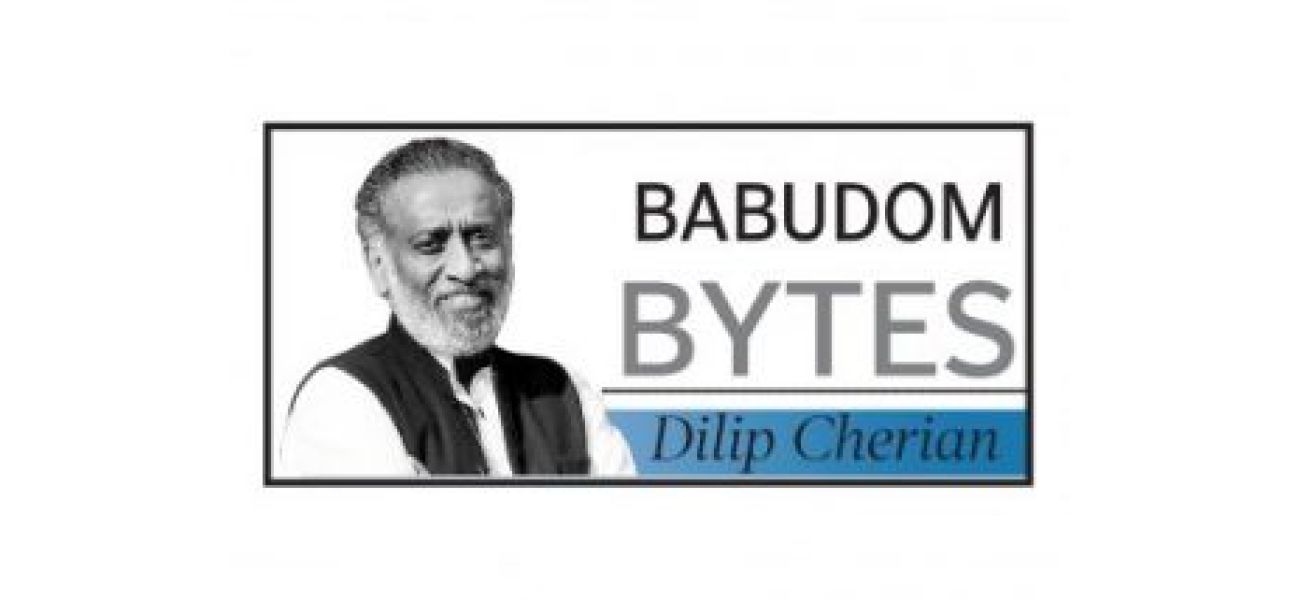Power Play is a strategic move used to gain control and advantage in a situation or game by utilizing one's resources effectively.
Sudhansh Pant's sudden transfer from a top position in Rajasthan to a central posting has sparked talk and curiosity in Jaipur. He will now serve as Secretary in the Ministry of Social Justice and Empowerment.
November 15th 2025.

Dilip Cherian's sudden departure from his position as Rajasthan's Chief Secretary to a central posting has caused quite a stir in Jaipur. While it may seem like a routine reshuffle on paper, those familiar with the state's bureaucracy know that this was not a planned exit with farewell celebrations. Cherian still had a year left in his service and it was clear that his tenure as Chief Secretary was far from over. This has led to speculation that his exit was a result of a strained relationship with the political leadership. There have been whispers of files being bypassed, transfer proposals being stalled or overridden, and a feeling of being micromanaged from outside the Secretariat. It's not surprising that even a seasoned officer like Cherian could sense that his time was up.
The Centre's decision to bring Cherian back into the Union government is seen as both a reward for his reliability and a subtle message to other states - when the Centre wants a particular officer, they will get that officer. Unfortunately for Rajasthan, this couldn't have come at a worse time. A sudden vacancy at the top causes a power struggle among senior officers, each with their own loyalists and political baggage. This inevitably disrupts administrative continuity, leading to delays in decision making and a build up of pending files. In a state that already struggles with frequent changes in bureaucracy, this only adds to the uncertainty.
Cherian, on the other hand, has landed in Delhi with a bigger canvas and a reputation for being a safe pair of hands. But the bigger story here is what his departure says about the state-Centre relationship. When a Chief Secretary is suddenly removed from their position, it's not just a transfer - it's a reminder that India's federal structure works more like a tug-of-war, with the rope constantly shifting towards Raisina Hill.
Moving on to another state, West Bengal has long had a reputation for being a dead-end for All India Service officers. Many officers joke that once you enter the cadre, you may never leave, at least not with your rightful entitlements. The recent case of 2022-batch IPS officer Aashish Kumar only adds to this image. Kumar simply wanted to be transferred to the AGMUT cadre after marrying his batchmate, Dr Akansha Milind Tamgadge. Seems like a straightforward request, right? Not in Bengal. His reminders for a No Objection Certificate were seemingly stuck in the slowest elevator in the world, until he finally had to approach the Central Administrative Tribunal (CAT) for help.
What makes this case even more telling is that it's not the first time the tribunal has had to intervene in West Bengal's bureaucratic processes. Marriage grounds for cadre transfers are not uncommon and are even part of the government's policy, with the understanding that family cohesion leads to better administrative efficiency. However, when states drag their feet, it only becomes a battle of bureaucratic stubbornness, causing delays and disruptions in the system. The CAT's directive to grant the NOC within two weeks or it will be deemed issued is a clear indication that Delhi is not willing to let state-level inertia interfere with All India Service rules. This ruling is a morale booster for other officers stuck in similar situations, and a reminder for the state to follow the rules it has agreed upon.
Shifting focus to Delhi, there's a buzz in the babu corridors about a request from the Vice President's office for a detailed report card. This has caused some mild panic among senior officers, as no one dares to question the purpose of the directive out loud. The timing of this request is especially interesting, as there is now a sharper focus on outcomes and results in the third term of the Modi government. While it may seem normal for the Vice President to seek clarity on ministry performance, the added insistence on a presentation and a written report submitted in advance suggests a desire for scrutiny or an audit-style overview. This has caused some discomfort among babus, who are used to navigating in a world of controlled ambiguity.
To their credit, many ministries have already rushed to comply with the request, eager to avoid a second reminder. Others are scrambling to put together their presentations, trying to shape their achievements into a coherent narrative. The bigger question is what this request signals - a more assertive Vice President shaping his role, a push for performance accountability, or just another layer of paperwork in an already cumbersome system? For now, the babus are treating it like a pop quiz with a very important invigilator, hoping their answers will score well.
The Centre's decision to bring Cherian back into the Union government is seen as both a reward for his reliability and a subtle message to other states - when the Centre wants a particular officer, they will get that officer. Unfortunately for Rajasthan, this couldn't have come at a worse time. A sudden vacancy at the top causes a power struggle among senior officers, each with their own loyalists and political baggage. This inevitably disrupts administrative continuity, leading to delays in decision making and a build up of pending files. In a state that already struggles with frequent changes in bureaucracy, this only adds to the uncertainty.
Cherian, on the other hand, has landed in Delhi with a bigger canvas and a reputation for being a safe pair of hands. But the bigger story here is what his departure says about the state-Centre relationship. When a Chief Secretary is suddenly removed from their position, it's not just a transfer - it's a reminder that India's federal structure works more like a tug-of-war, with the rope constantly shifting towards Raisina Hill.
Moving on to another state, West Bengal has long had a reputation for being a dead-end for All India Service officers. Many officers joke that once you enter the cadre, you may never leave, at least not with your rightful entitlements. The recent case of 2022-batch IPS officer Aashish Kumar only adds to this image. Kumar simply wanted to be transferred to the AGMUT cadre after marrying his batchmate, Dr Akansha Milind Tamgadge. Seems like a straightforward request, right? Not in Bengal. His reminders for a No Objection Certificate were seemingly stuck in the slowest elevator in the world, until he finally had to approach the Central Administrative Tribunal (CAT) for help.
What makes this case even more telling is that it's not the first time the tribunal has had to intervene in West Bengal's bureaucratic processes. Marriage grounds for cadre transfers are not uncommon and are even part of the government's policy, with the understanding that family cohesion leads to better administrative efficiency. However, when states drag their feet, it only becomes a battle of bureaucratic stubbornness, causing delays and disruptions in the system. The CAT's directive to grant the NOC within two weeks or it will be deemed issued is a clear indication that Delhi is not willing to let state-level inertia interfere with All India Service rules. This ruling is a morale booster for other officers stuck in similar situations, and a reminder for the state to follow the rules it has agreed upon.
Shifting focus to Delhi, there's a buzz in the babu corridors about a request from the Vice President's office for a detailed report card. This has caused some mild panic among senior officers, as no one dares to question the purpose of the directive out loud. The timing of this request is especially interesting, as there is now a sharper focus on outcomes and results in the third term of the Modi government. While it may seem normal for the Vice President to seek clarity on ministry performance, the added insistence on a presentation and a written report submitted in advance suggests a desire for scrutiny or an audit-style overview. This has caused some discomfort among babus, who are used to navigating in a world of controlled ambiguity.
To their credit, many ministries have already rushed to comply with the request, eager to avoid a second reminder. Others are scrambling to put together their presentations, trying to shape their achievements into a coherent narrative. The bigger question is what this request signals - a more assertive Vice President shaping his role, a push for performance accountability, or just another layer of paperwork in an already cumbersome system? For now, the babus are treating it like a pop quiz with a very important invigilator, hoping their answers will score well.
[This article has been trending online recently and has been generated with AI. Your feed is customized.]
[Generative AI is experimental.]
0
0
Submit Comment





